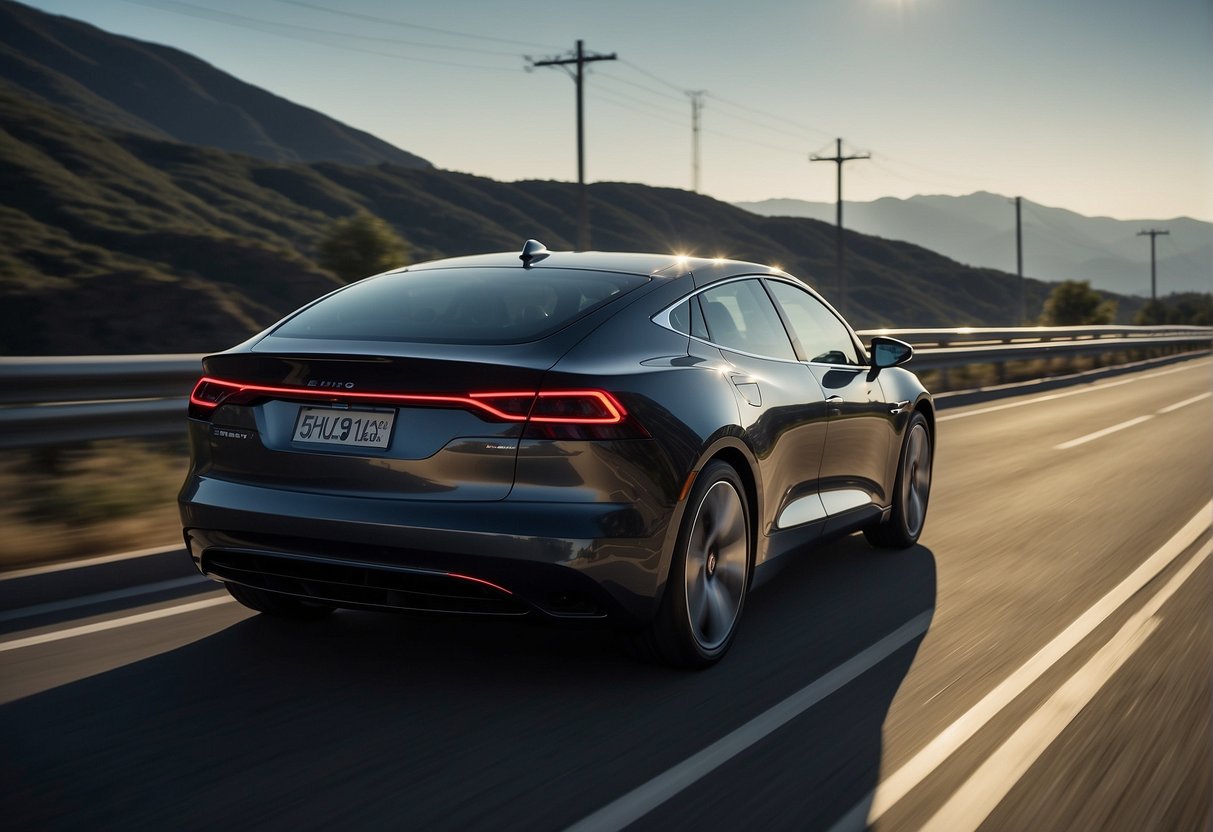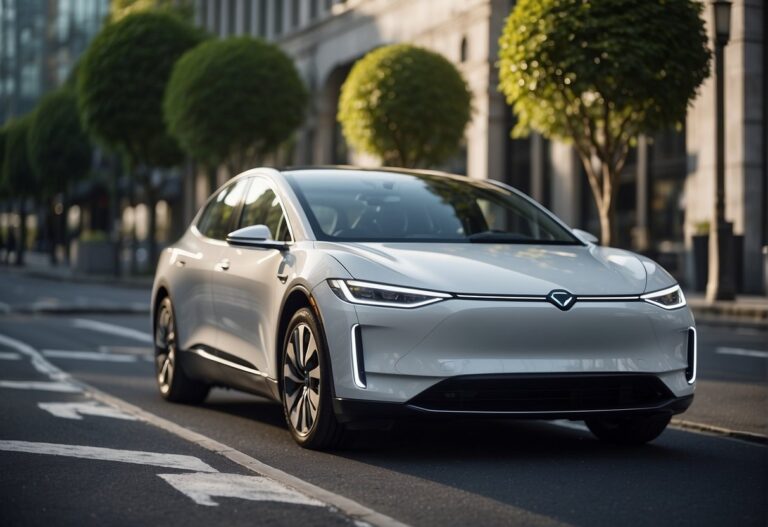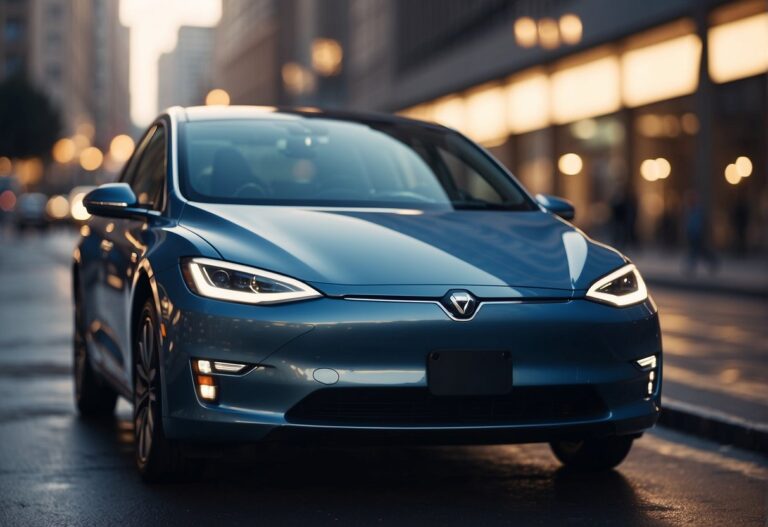Solid-state batteries have been a hot topic in the world of electric vehicles (EVs) for several years now. These batteries are seen as the future of EVs due to their high energy density, faster charging times, and improved safety. Unlike traditional lithium-ion batteries, solid-state batteries use a solid electrolyte instead of a liquid one, which makes them less prone to catching fire or exploding.
One of the most significant impacts of solid-state batteries on EVs is their performance. Solid-state batteries are capable of storing more energy than traditional lithium-ion batteries, which means that they can power EVs for longer distances. Additionally, solid-state batteries can be charged much more quickly than traditional batteries, which means that drivers can spend less time waiting for their cars to charge and more time on the road. This improved performance could be a game-changer for the EV industry, as it could help to overcome one of the biggest barriers to widespread adoption of EVs – range anxiety.
Advancements in Solid-State Battery Technology
Solid-state batteries (SSBs) have emerged as a promising alternative to traditional lithium-ion batteries, offering improved safety and energy density. Recent developments in SSB technology have led to significant advancements in solid electrolytes and anodes, making them a viable option for electric vehicles (EVs).
Comparing Solid-State to Lithium-Ion Batteries
Unlike lithium-ion batteries, which use a liquid electrolyte and a graphite-silicon anode, solid-state batteries use a solid electrolyte and a lithium-metal anode. This eliminates the risk of thermal runaway and reduces the risk of fire, making them safer for use in EVs. Additionally, solid-state batteries offer higher energy density, which means they can store more energy in a smaller space, increasing the range of EVs.
Innovations in Solid Electrolytes and Microstructure
Recent innovations in solid electrolytes have improved the performance of solid-state batteries. For example, researchers at Solid Power, Inc. have developed a sulfide-based solid electrolyte that can operate at room temperature, improving the stability and conductivity of the battery. Additionally, advancements in microstructure have led to the development of solid-state batteries with increased surface area, allowing for faster ion transport and higher power density.
The Role of Major Automakers and Startups
Major automakers and startups alike have recognized the potential of solid-state batteries for EVs. Volkswagen has invested in QuantumScape, a startup developing solid-state batteries, and plans to release EVs with solid-state batteries by 2025. Toyota is also investing in solid-state battery technology and plans to release EVs with solid-state batteries by 2025. BMW is investing $1.7 billion in a new factory in South Carolina to produce EVs and their batteries, while Blue Solutions is developing solid-state batteries for use in buses and other commercial vehicles. Tesla has also expressed interest in solid-state battery technology, with CEO Elon Musk stating that the company is working on developing solid-state batteries for use in its EVs.
Overall, the advancements in solid-state battery technology have the potential to significantly impact the performance of EVs, offering increased safety and energy density. With major automakers and startups investing in solid-state battery technology, it is likely that we will see more EVs with solid-state batteries in the near future.
Impact on Electric Vehicle Performance and Safety
Solid-state batteries are a promising technology that could revolutionize the electric vehicle (EV) industry. They have the potential to enhance EV performance and safety while also opening up new market opportunities for energy storage systems and consumer electronics applications.
Enhancements in EV Drive Range and Charging Time
One of the most significant advantages of solid-state batteries is their ability to improve EV drive range and charging time. Solid-state batteries have a higher energy density than traditional lithium-ion batteries, which means they can store more energy in the same amount of space. This translates to longer driving ranges and faster charging times for EVs.
Safety Improvements and Dendrite Formation
Solid-state batteries also offer safety improvements over traditional lithium-ion batteries. They are less prone to dendrite formation, which is a major cause of battery fires in EVs. Dendrites are tiny metal fibers that can grow inside a battery and cause a short circuit, leading to overheating and potentially a fire. Solid-state batteries use a solid electrolyte instead of a liquid electrolyte, which makes them less susceptible to dendrite formation.
Market Opportunities and Consumer Electronics Applications
The development of solid-state batteries is also creating new market opportunities for energy storage systems and consumer electronics applications. Solid-state batteries have the potential to be smaller, lighter, and more efficient than traditional lithium-ion batteries, which makes them ideal for use in portable electronics like smartphones and laptops.
In conclusion, solid-state batteries have the potential to revolutionize the EV industry by improving performance and safety while also opening up new market opportunities for energy storage systems and consumer electronics applications. While the technology is still in the early stages of development, it is clear that solid-state batteries will play a significant role in the future of EVs.
Frequently Asked Questions
What improvements can be expected in EV range with the adoption of solid-state batteries?
Solid-state batteries are expected to significantly improve the range of electric vehicles. While traditional lithium-ion batteries typically provide a range of around 250-300 miles, solid-state batteries have the potential to provide a range of up to 500 miles or more. This is due to their higher energy density and ability to store more energy in a smaller space.
How do solid-state batteries enhance the overall performance of electric vehicles?
Solid-state batteries offer several advantages over traditional lithium-ion batteries. They are safer, more durable, and have a longer lifespan. They also charge faster and are less prone to overheating, which can damage the battery and reduce its performance. In addition, solid-state batteries can be made in a variety of shapes and sizes, making them more versatile and easier to integrate into different types of vehicles.
What are the potential drawbacks of using solid-state batteries in EVs?
One potential drawback of solid-state batteries is their cost. Currently, they are more expensive to produce than traditional lithium-ion batteries, which could make them less accessible to consumers. In addition, the technology is still relatively new, and there are some challenges that need to be overcome in terms of manufacturing and scaling up production.
When are solid-state batteries anticipated to be commercially available for EVs?
Several companies are currently working on developing solid-state batteries for electric vehicles, but it may be several years before they are widely available. Some experts predict that they could become commercially available by the mid-2020s, but this timeline could vary depending on how quickly the technology is developed and adopted.
In what ways do solid-state batteries outperform traditional lithium-ion batteries in EV applications?
Solid-state batteries offer several advantages over traditional lithium-ion batteries. They have a higher energy density, which means they can store more energy in a smaller space. They also charge faster, are less prone to overheating, and have a longer lifespan. In addition, solid-state batteries are safer and more durable, which could help to reduce the risk of accidents and increase the overall reliability of electric vehicles.
What impact will widespread use of solid-state batteries have on the EV market?
Widespread adoption of solid-state batteries could have a significant impact on the electric vehicle market. It could lead to the development of more efficient and reliable electric vehicles, which could help to increase their popularity and reduce their cost. It could also lead to the development of new types of electric vehicles, such as long-haul trucks and buses, which are currently not practical with traditional lithium-ion batteries. Overall, the widespread use of solid-state batteries could help to accelerate the transition to a more sustainable and environmentally-friendly transportation system.



